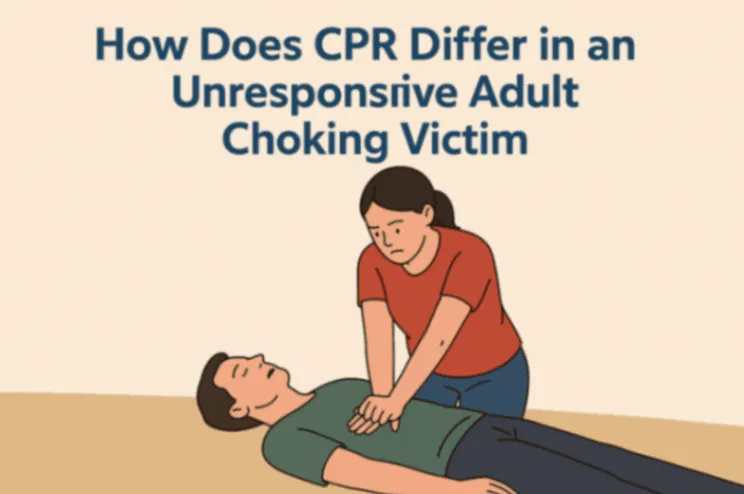Have you ever had a cold that just wouldn’t go away, and then suddenly, you’re struggling to breathe? You might be thinking it's just “bad bronchitis.” But what if it’s not?
It’s common to ignore a cough or body aches, hoping they'll pass. But sometimes, what starts as mild bronchitis can worsen and lead to pneumonia, a far more dangerous condition. The symptoms can look similar in the beginning, raising the important question—can bronchitis turn into pneumonia?
In this blog, let’s break down how bronchitis can turn into pneumonia, how to catch the signs early, and what you can do to stop it before it becomes serious.
How Does Bronchitis Start, and When Does It Become Dangerous?
Bronchitis is usually a viral infection. It inflames the bronchial tubes, which carry air into your lungs. Approximately 7% of patients diagnosed with acute bronchitis develop post-viral bacterial pneumonia.
Early symptoms often feel like a bad cold.
These include:
Dry or wet cough
Slight fever
Sore throat
Tiredness
Chest tightness
The infection may clear up in a few days. But if your immunity is low or you delay treatment, it can travel deeper into the lungs. This leads to pneumonia, where the air sacs fill with fluid.
What Changes When Bronchitis Turns Into Pneumonia?
When bronchitis progresses to pneumonia, your symptoms become more intense and potentially dangerous:
Breathing becomes harder
Fever goes higher
Cough gets heavier
Mucus turns green or yellow
Chest pain increases
You feel much weaker
At this point, the infection has reached the lungs and may require antibiotics, hospitalisation, or even oxygen support.
Bronchitis vs. Pneumonia: What’s the Difference?
While both affect your lungs, bronchitis and pneumonia are not the same. Here's a quick comparison:
Symptom | Bronchitis | Pneumonia |
Cough | Often starts dry, then mucus | Wet cough with heavy phlegm |
Fever | Mild (100°F - 100.4°F) | Higher (above 101°F) |
Chest discomfort | Tightness, sometimes burning | Sharp pain, worsens on deep breath |
Shortness of breath | Mild | Moderate to severe |
Fatigue | Present but manageable | Can be extreme |
Response to antibiotics | Not helpful unless bacterial | Essential in bacterial pneumonia |
You may not see all the symptoms right away. Some people, especially elders, don’t even show a fever.
What Causes Bronchitis and How Can It Transform Into Pneumonia?
Causes of Bronchitis
Viral: Most common. Usually caused by cold viruses.
Bacterial: Less common, but more serious.
Irritants: Smoke, air pollution, dust.
Causes of Pneumonia
Bacterial pneumonia: Caused by Streptococcus pneumoniae, Chlamydophila, or Legionella.
Viral pneumonia: Can come from flu or COVID-like viruses.
Fungal pneumonia: Often seen in people with low immunity.
Mycoplasma pneumoniae: Caused by organisms without cell walls.
Untreated bronchitis can evolve into viral or bacterial pneumonia. Fungal pneumonia doesn’t come from bronchitis, but it can mimic the symptoms.
Who’s at Risk of Developing Pneumonia After Bronchitis?
Bronchitis isn’t always serious, but in some cases, it can take a dangerous turn. You’re more at risk if you:
You are more at risk if you:
Are over 65 or under 2 years old
Have chronic diseases (asthma, diabetes, heart issues)
Smoke regularly
Drink alcohol in excess
Have weak immunity (e.g., due to cancer therapy)
Have difficulty swallowing (e.g., after a stroke)
Are bedridden or rarely move
In these people, a simple cough can quickly become life-threatening if not managed early.
Symptoms You Should Never Ignore
Here’s when you need to be alert. If you or someone you care for has bronchitis and shows the following signs, it might be turning into pneumonia:
Cough with green, yellow, or blood-tinged phlegm
Persistent fever or chills
Breathing faster than usual
Wheezing or tightness that worsens
Confusion or low oxygen levels
Blue lips or nails
Feeling like your chest is being crushed
These signs could indicate pneumonia or another serious respiratory issue.
How Do Doctors Confirm Pneumonia?
To confirm pneumonia, doctors may perform:
Physical examination: They listen for crackling or wheezing in the lungs.
Chest X-ray: To see fluid or pus in the lungs.
Blood test: To identify infection markers.
Pulse oximetry: To check oxygen saturation.
Sputum test: To find the bacteria or virus causing the issue.
Prompt testing helps prevent severe outcomes. For seniors or infants, doctors may not wait for all symptoms to show.
Can You Prevent Pneumonia from Bronchitis?
Yes, and early action is the key. The steps are quite simple. But they need to be followed properly and early.
1. Don’t Ignore Early Signs
Don’t assume your cough will go away.
If symptoms last more than 5 days, see a doctor.
Ask if you need antibiotics or just rest.
2. Take Medications Properly
Finish your full course of antibiotics if given.
Use inhalers or breathing meds if you have asthma.
Avoid self-medicating with strong cough syrups.
3. Practice Breathing Techniques
Steam inhalation
Deep belly breathing
Use an incentive spirometer (especially for recovery)
4. Stay Hydrated and Nourished
Water thins mucus
Warm fluids soothe your throat
Eat fruits and soups, avoid junk
Extra Prevention Tips for High-Risk Groups
Vaccination: Take flu shots yearly and pneumonia vaccines as advised.
Quit Smoking: The Lung lining heals quickly once you quit.
Use Masks: Especially in crowded places or dusty areas.
Stay Active: Even a slow walk boosts immunity.
Manage health conditions: Control sugar, BP, and asthma properly.
How Long Does Recovery Take?
Mild bronchitis: 1 to 2 weeks
Bacterial bronchitis with treatment: 7 to 10 days
Pneumonia (treated at home): 2 to 3 weeks
Severe pneumonia (hospitalised): May need a month or more
Your doctor might recommend rest even after the fever goes down. That’s because lungs take time to clear up fully.
When Should You Go to the Hospital?
Some people try to manage at home for too long. But there are moments when delay can be fatal.
Go to the ER or urgent care if you experience:
Trouble breathing or gasping
Fever that stays above 101°F for more than 2 days
Confusion, dizziness, or extreme exhaustion
Pre-existing conditions worsening (e.g., heart or asthma issues)
Mention if it all started with a cold or cough—it helps doctors pinpoint the root cause quickly.
Final Thoughts
Bronchitis may seem harmless at first, but it can take a bad turn if you don’t take care. Many people wonder, can bronchitis turn into pneumonia? The answer is yes, and pneumonia is not just another cough. It can damage your lungs, lower oxygen levels, and even become deadly. Especially in the elderly or people with health issues, the symptoms may not follow the usual path.
Always treat bronchitis seriously. If things don’t improve in a few days, don’t wait. Acting early can prevent serious problems and save lives.
Frequently Asked Questions
Can viral bronchitis still become pneumonia?
Yes, viral bronchitis can lower lung defences, letting bacteria infect the lungs later. That causes secondary bacterial pneumonia.
How do I know if my cough is from pneumonia or bronchitis?
If your cough becomes painful, produces coloured mucus, and you feel short of breath, it may be pneumonia. Only a doctor and chest X-ray can confirm.
Can I take antibiotics for both bronchitis and pneumonia?
Only if it’s bacterial. Antibiotics won’t help viral infections. But if your doctor suspects bacteria, they might prescribe it early to prevent pneumonia.
Should I go to work if I have bronchitis?
No. Rest helps healing. Also, bronchitis is contagious, especially in the early days. Take time off and recover fully.
Why do old people with pneumonia not get fever?
In older adults, the body’s immune reaction is weaker. A study of elderly veterans showed 39% did not have fever even with pneumonia. That’s why doctors look at other signs too.
Reviewed by







